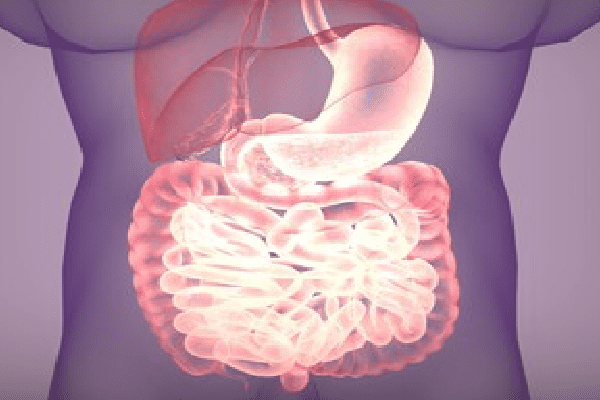Digestive regulators >>>> Gastroinhibitory peptide is a gastrointestinal hormone
Gastroinhibitory peptide is a gastrointestinal hormone.

Gastroinhibitory peptide (GIP) is a hormone that regulates the functioning of the gastrointestinal tract. Gastroinhibitory peptide is secreted by gastrointestinal cells of the antrum of the stomach (the pylorus of the stomach), small intestine (duodenum, jejunum) at the stage when chyme, food containing carbohydrates and fats, enters them. GIP is secreted exclusively during oral ingestion of food in response to its mechanical movement into the zones of action of the peripheral cells of the pancreas.
The gastroinhibitory peptide responds:
- for a decrease in intestinal motility: inhibits (inhibits) the secretion of gastrin and somatostatin, which accordingly prevents the secretion of hydrochloric acid and pepsin in the stomach,
- for slowing down the action of enzymes that break down triglycerides and lipoproteins (fat cells),
- in the small intestine prevents the reabsorption of water from the intestine,
- counteracts sodium reabsorption from the intestinal lumen,
- stimulates the secretion of glucagon (a hormone of the pancreas) and the secretion of insulin, for which it received its second name - "glucose-dependent insulinotropic polypeptide".
Considering that the secretion of the gastrointestinal peptide is stimulated in the small intestine by analyzers that react to the stretching of the intestinal walls when the chyme moves from the stomach to the intestine, this gastrointestinal hormone, along with other gastrointestinal hormones, is responsible for the sharp release of insulin into the blood during dumping syndrome (abrupt transition of components undigested carbohydrate-containing food from the stomach into the intestine) and, as a result, the development of hypoglycemic syndrome.

Read

Read



























